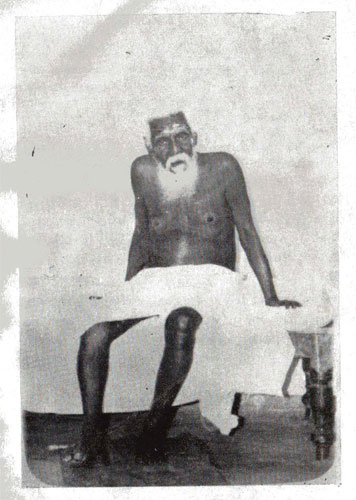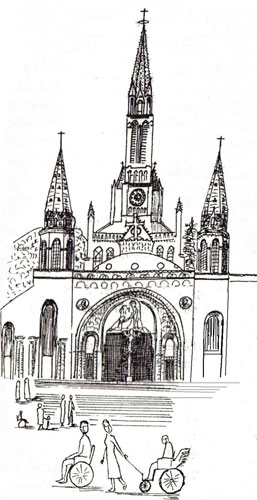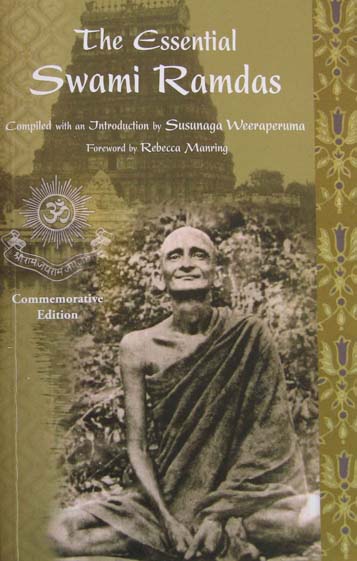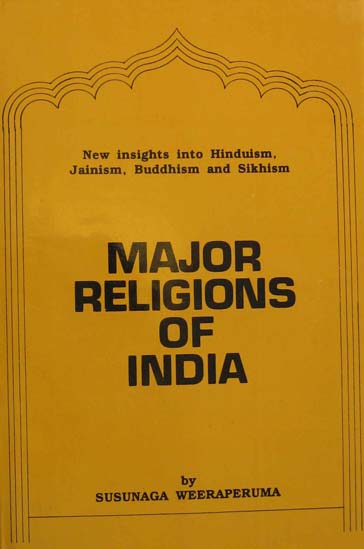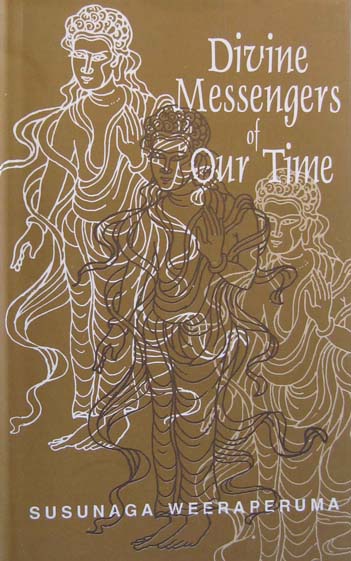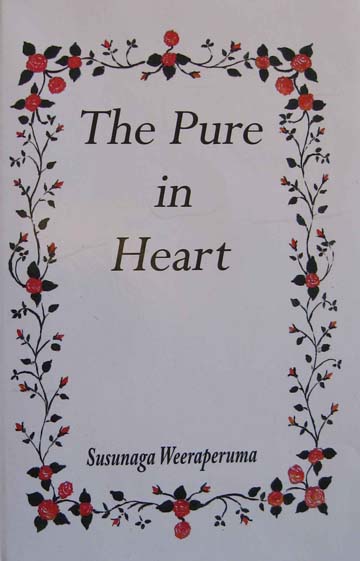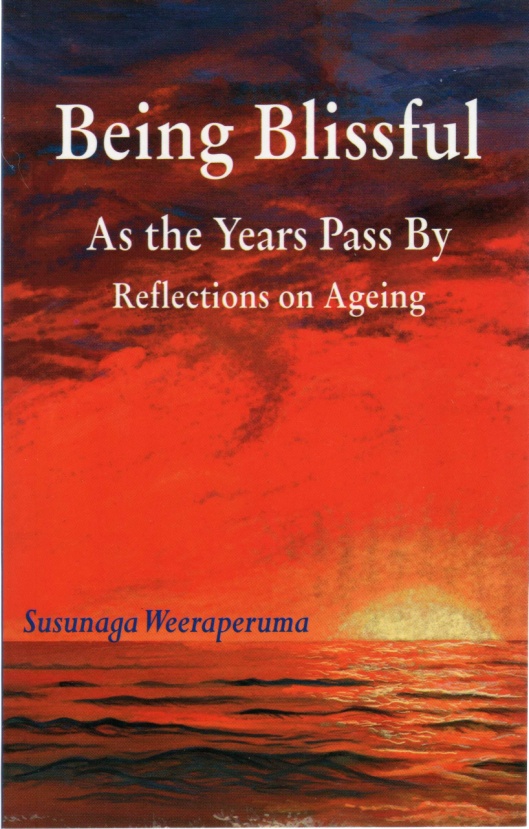 Being Blissful
Being Blissful
As the Years Pass By
Reflections on Ageing
ISPCK
Post Box 1585
1654, Madarsa Road
Kashmere Gate
Delhi 110006
India
www.ispck.org.in
ashish@ispck.org.in
ella@ispck.org.in
Preface
Old age, alas, is what awaits each and every living
creature on Planet Earth. Sooner or later we all have to live through this
dreaded winter of our lives. Unfortunately, it cannot be avoided. Those who
live long enough will someday have to face the unpleasant fact that they are no
longer youthful. Unless a person passes away early in life, he or she is fated
to experience the problems that arise from having an ageing body and mind.
Have you met anyone with the extraordinary capacity to wave
a magic wand and turn the elderly into lively lads and lovely lasses? I have
heard it said in occult circles that some celestial beings are luckier than us
in so far as they never age, being always in the springtime of life.
In these essays I have striven to show that growing old
does not necessarily mean that you are doomed to suffer. On the contrary, by
using their leisure time intelligently and creatively, in the various ways
indicated in this book, it is indeed possible for the grey-haired to achieve in
this very life a degree of delight and fulfilment never before known or
imagined.
Retirees, who are older and presumably wiser than the rest
of the community, could and indeed should take an interest in at least the
major political, social, economic and environmental questions that affect the whole society. But if their focus of
attention is merely confined to matters relating to their special interests –
better health benefits or higher pensions, for example – such an attitude
savours of selfishness and indifference to the welfare and happiness of other
sections of the population. Would a narrow outlook based solely on
self-interest endear the elderly to the younger members of the public? The
latter, however, are more likely to regard the elderly with a certain reverence
once the retirees become genuinely gripped by the problems and difficulties of all. Those who are advanced in years can
participate in the public debates of the day, using the local and national
media to express their views. They can counsel the community, doing all this
and more while remaining seated in their warm and cosy chairs and enjoying the
comforts of hearth and home. Armchair critics can contribute a great deal and
stimulate thought. Then the world will show senior citizens the respect and
deference that they truly deserve.
The aged are under no obligation to do anything for the
betterment of the state as a whole: they have the freedom to do nothing. But
they can, depending on their natural inclinations, devote the ample time at
their disposal to tend their gardens, read over again their favourite books or
the tomes that they had never got down to poring over, pursue their own
interests and hobbies, contemplate the eternal verities, or do anything else
that takes their fancy. Given their long experience and learning, each and
every senior citizen is potentially capable of blossoming into a spiritual
guide to a world that is shrouded under the dark clouds of ignorance and
prejudice. The elderly will be of immense use to the younger generation who are
still part of the workforce. No longer will old age pensioners be viewed as a
liability to the community. No, quite the contrary, for the retirees will be
seen instead as invaluable assets. Their declining years could well turn out to
be their best and happiest period, especially when they start feeling wanted,
loved and cared for by those who are younger than them.
Imagine a situation where the country, confronted with
financial problems, rising prices, mass unemployment and homelessness, is
traumatised by social unrest. Strikes and violent demonstrations are the order
of the day. With the intention of diverting attention from the prevalent
economic chaos, the political leaders plan to wage war on a foreign nation that
many people perceive as a threat. The rulers falsely accuse that state of
having weapons of mass destruction. The powerful politicians mount a propaganda
campaign against that alien nation. The vast majority of citizens, being full
of intense hatred, are ready to fight. Many sections of the national media
support war and even glorify it. Only very few escape the fever of hostility.
Among the few dissenters is a nonagenarian gentleman, a
genuinely gentle man, who has been and still is a lifelong pacifist. He
collects the signatures of 150 other nonagenarian retirees from various parts
of the country for a petition against the war. Thereafter the petition is
printed on the first pages of several leading newspapers. The petition, which
makes front-page news, reads as follows:
We,
the undersigned, being nonagenarians, are old enough to remember the Second
World War and the subsequent armed conflicts with all the attendant barbarism,
brutality and bloodshed. We hereby express our total opposition to the
forthcoming war. We also strongly protest against the production, distribution
and sale of arms. We will have no truck with killers or the killing business.
We
maintain that our government should enter into negotiations with our so-called
enemies because negotiations, even seemingly endless negotiations, are
preferable to military action involving the slaughter of soldiers and the
destruction of innocent civilians.
Soon after the anti-war petition is published in the
national papers, a septuagenarian preacher, who lives in an old folks’ home,
gives a short but poignant speech during prime time television in which he
touches upon the pain and suffering caused by bombing. He says, “I shall end
this talk by asking you to ponder over two remarkable sayings of Jesus: ‘Put
your sword back in its place because all who draw the sword will die by the
sword’ and ‘Blessed are the peacemakers: they will be regarded as the sons of
God’.”
Much to the surprise of the nonagenarians, their petition
does dent the confidence of the warmongering public. There is a noticeable
reduction in the enthusiasm of those who support military force for settling
international disputes. For example, whereas in the past soldiers used to be
cheered and clapped during military parades on the streets, the crowd would
rather jeer them now. Needless to say, the soldiers’ morale becomes extremely
low. Newspapers report that thousands of servicemen and servicewomen have
deserted. An opinion poll shows that 90 % of voters are against the proposal to
wage war.
The peace-loving people are grateful to the nonagenarians
who took the trouble to show society the absurdity of war. It was they who
saved the militaristic millions from themselves.
The chapter The Truth
About Meditation highlights the importance of inner purification. If
retirees use some of their leisure time for self-examination and
self-observation they might eventually come by a state wherein they are at
peace with themselves. What a blessing to be free from fear, anger and jealousy!
Those who are no longer filled with resentments and have given up the habit of
bearing grudges can be likened to sages. Such individuals will surely become
instrumental in the moral and spiritual regeneration of humanity.
Being Blissful As the Years Pass By
The following passages have no sequential link. Based on my
experience and that of other retirees, they are a collection of random
reflections on the art of aging, not with pangs of regret and nostalgic
wistfulness, but with feelings of very great happiness.
My career in the
world of libraries did not last long. After having got a professional
qualification as a librarian, I became a senior member of staff in the
London-based British Library and the South Australian Parliamentary Library in
Adelaide. Following twenty-five years of full-time employment, I took early
retirement at the age of fifty-two. On that occasion my boss stated that he was
sorry that I was leaving, especially because I had been responsible for
introducing several new improvements to the library system. For years I had
worked extremely hard; after returning home from work in the evenings, often I
was too tired to eat, walk, read or watch TV. My mental and physical fatigue
was compounded by back pains. I realised that I was at the end of my tether; I
felt I had had enough. It was not so much a mid-life crisis experienced by
those who become anxious about their advancing years as a yearning to quit the
rat race – nay, run away from all my worldly responsibilities and grow into a
sort of recluse who lives in blissful isolation for evermore. Today,
approximately twenty-five years since I had given up working, it is time to
make a correct assessment of the situation. I can say in all honesty that,
although I have had my ups and downs in the course of a quarter of a century,
on the whole, I have been feeling exceptionally cheerful. Therefore I have
excellent credentials for writing these recollections, which sometimes extend
to my early years as a student.
Thursday is the busiest
day of the week for me, it being market day in Les Arcs-sur-Argens, the
insignificant little Provençal town where we live. Here earth-shattering events
hardly happen. Every few years there are mock medieval celebrations when the
sound of medieval music puts men, women and children in a festive mood.
Otherwise people would have to lead hundrum lives in this residential commune,
where a fair number of retirees have all gone grey. Generally speaking, my pace
of life is extremely slow but on Thursdays I feel stressed: I become the victim
of forces beyond my control. The need to buy my provisions for a week – nuts,
fruits, vegetables, cheese, yoghurt and bread – is never a problem; it is, in
fact, quite a pleasure. But having to stomach the oldies’ long litany of
complaints can be quite a trial.
“My grandson has
given up marijuana,” remarked Madame Sophie, leaning on her walking stick for
support. “And now he’s into heroin. All his new cronies are heroin addicts!”
All of a sudden
Madame Marie-Louise pushed herself through the crowd of widows who had
surrounded me and elbowed Madame Sophie out of the way. Having interrupted my
conversation with Madame Sophie, Madame Marie-Louise proceeded to complain, “My
arthritic knees make me suffer a million aches and pains. This month the pain
has taken a turn for the worse. I simply can’t sleep.”
“Why the hell don’t
you take painkillers?” screamed white-haired Madame Celine, cutting in on our
conversation, while flaunting her new silken skirt that suited her slim frame.
“You really shouldn’t bother others with personal problems, don’t you know?”
“Oh come on Celine,
you liar,” countered Madame Marie-Louise, “in the past I’ve heard you troubling him with your private problems.”
“I don’t have
personal problems but only international ones,” shouted Madame Celine, looking
at me eagerly with a forced smile.
“As the war in the
Middle East is a genuine worry, may I visit you this evening?”
“Yes, Madame
Celine,” I answered with some hesitation. After I had, so to speak, made myself
available for public consultation, there was just enough time to do my
shopping. That I had to do in a great hurry. I was just in time to catch the
minibus for transporting home my shopping trolley with all the fruits and
greens. I breathed a sigh of relief when the minibus reached our gates.
“I had to tell a fib,” confessed Madame Celine with a girlish
giggle, seating herself on a chair in our sitting room that evening. “By
declaring in public that I was interested in international problems, I showed
that silly bunch of bitches that I’m intellectually superior to all of them,
ha! ha!”
“But aren’t you really keen on discussing world problems?” I
asked.
“World problems?” Madame Celine repeated. “I don’t care two
hoots whether the world goes to rack and ruin! At my age I only care about
myself – my problems, my health, my money and that’s about all.”
“Is this why you wanted to visit me?” I inquired, feeling
slightly annoyed.
“The real reason for the visit was quite different,” she
explained. “Please tell all your friends that, as I’m dying to sell my villa
quickly, I’m offering it for sale at a greatly reduced price. I urgently need
the money to get into a first-class old people’s home.”
In the course of growing old I realised that it is possible for
all sections of society to console the elderly a great deal. We can do this by
giving a patient and compassionate hearing to all their problems, grievances
and complaints. We can become good listeners and lend a sympathetic ear. At the
same time, be careful never to foist your difficulties and problems on the
aged. On the contrary, can we not try to lift their heavy burdens from their
aching shoulders, thus providing them with heaps of happiness?
Fifty years ago when
I was a dark-haired young man, instead of being a white-haired retiree, I had
many friends. Most of my companions of yesteryear have passed away and the few
surviving ones have little or no interest whatsoever in meeting me. When I
occasionally give two Australian friends a tinkle they are more than pleased;
if I ring a pal in London he is overjoyed. The odd thing is that all these
three mates are males of Asian origin who no longer work. A few friends, who
are considerably younger than me, feel scared to give me their email details or
phone numbers. Fortunately, I bear no grudge against them. I respect their
wishes to distance themselves from me. These companions are, quite rightly,
exercising their right to remain undistrubed, especially by those on the verge
of decrepitude and eventual death. On the whole, the truth of the matter is
that almost everywhere the elderly are evaded by the young, except in
situations where there is a love-based link, such as the bond between spouses
or soul mates. Regardless of their age, people who are extremely wealthy,
powerful or famous will draw hordes of people like a magnet. The Indian sage
and philosopher, J. Krishnamurti (1895-1986), for instance, was continually
pestered by admirers for spiritual advice throughout his long life, and even
when terminally ill with cancer. It can be a blessing when people leave you
alone in certain circumstances, particularly when solitude is infinitely
preferable to the state of being surrounded by fans who burn with curiosity.
Several decades ago
I used to be indundated with letters. Consequently, each week I had to spend
many precious hours answering my correspondents. Nowadays, however, it is
rarely that I receive a personal letter. I do get lots of official letters,
bank statements and bills for payment. I am indeed happy about the great lack
of letters. This enviable situation is excellent in so far as I have additional
time for better things. Once again the dearth of letters is further evidence of
the fact that, being an oldie, I am of little interest to the world. In truth,
I do not in any way feel bitter about the marginalization of the aged. On the
contrary, there is in me a certain surge of relief and gladness. It would make me happier to live the life of a hermit
than to associate with lots of friends, especially if the latter feign
friendship and cleverly conceal their deep dislike of me.
Lest anyone pictures me as a
friendless miserable man, it is necessary to dispel that impression by stating
that I do have a handful of true friends, but I hardly meet them: they are scattered
in different continents. Over the years many friends have come and gone, but
these few friendships, which have stood the test of time, continue to flourish.
Despite my advanced years none of them has had the heart to abandon me. Among
these close friends six Asians – Sunil Wijayawickrame, Sebastian Cavalho,
Chandi Scott, Andrew Scott, Upali Salgado and Usula Wijesuriya – stand out
since their lives exemplify the virtues of Metta
– loving-kindness and Karuna –
compassion. Houses of friendship last forever, provided they were built with
the bricks of virtue, whereas houses of friendship based on the principle of
mutual benefit – symbiotic relationships – crumble away after a time, like
dwellings constructed on shifting sand.
Come Christmas, the
season of goodwill, we have to give and receive gift-wrapped presents as is the
time-honoured custom. I do not mind following this ritual year after year,
although I am not a Christian, because any material offering should,
strictly speaking, be accompanied by that non-material element called
affection. Donations devoid of affection are like flowers bereft of fragrance.
The love that activates the giving of a gift, if it is really there, is
infinitely more important than the gift itself. Otherwise, making someone a
present of something often becomes an empty or meaningless gesture, designed to
deceive the recipient of the gift into regarding it as an amity-inspired deed
when, in fact, it was driven by animosity. How often is a gift the outcome of
pure love? These days, unfortunately, seldom is anything offered with no
strings attached.
In my student days I would spend an
entire day shopping in the West End, buying suitable books for about two dozen
friends. The following day would be taken up with inscribing their names inside
the front covers, packing the books and taking them to a post office. A few
days after Boxing Day, I would receive handwritten letters of appreciation from
all the recipients. Without exception they would all express their thanks. Hearing
from these friends was as much a joy as the exciting process of carefully
selecting titles for their varied tastes, temperaments and interests.
Several decades later, it being the
21st century now, I still enjoy buying Christmas presents and
dispatching them by post in time. If I send a dozen packets, believe it or not,
on average, only about two recipients send me written acknowledgements.
Interestingly, those who remember to write back invariably belong to my
generation.
What am I to do? I never declare war
on the thoughtless and the ill-mannered. My deep affection for them never
diminishes, for they are also part of the world in which I have to live. I
accept them with a sad smile, feeling pity for them sometimes, in the same way
that I resign myself to foul weather.
Mr V. Kulkarni, a former colleague of
mine from the British Museum library (now called the British Library), who as
head of his large family of uncles, aunts, nephews and so forth, would advise
family members on many matters. He was a highly respected father figure to all
the younger relations. A learned Brahmin with a liberal outlook on life,
Kulkarni became a role model not only for his family but also for all his
friends like me. Who would not be pleased when the kinsfolk look up to you? My
relations, by contrast, have never shown respect and deference to me. I am not
disappointed with them. I accept the situation with equanimity.
Gone are the days when young people
treated the superannuated with respect. Sometimes, though, it is still possible
to see how some children offer their seats to the elderly in trains and buses.
Boys and girls who have had a good and strict upbringing try to be helpful to
the aged in various ways. They are delighted to carry the luggage or shopping
for the retired, particularly if the latter are infirm. But if such assistance
is not forthcoming, it would seem somewhat undignified if a person who is
advanced in years were to demand it or to make a scene.
Increasingly, nowadays, the young
seem to ignore my age and treat me as one of their peers. Why do they do this?
I wonder. It is not that I am looking younger and younger with every year that
passes, but rather it is the prevailing ethos to treat everyone as an equal.
This, I think, is the explanation. C’est l’égalité! That great battle cry of
the French Revolution of 1789, which was once expressive of the opposition to
absolute monarchy and the system of class privilege of the bumptious Bourbons,
is today expressive of the youthful opposition to the condescending ways of
their elders. Young persons, in other words, like to be treated as adults.
Since I dislike talking down to those who are still in the springtime of their
lives, I treat them instead as my younger schoolmates, and so it has become
possible to have a harmonious relationship with them.
Painters like to depict wise men as
white-haired and bearded. In many societies the aged are venerated as sources
of sagacity. This attitude is part of our subconscious. It goes without saying
that the old have had more experience of the world than the young. Therefore,
if I choose to offer unsolicited advice to the youth of today, doing so in the
mistaken belief that the older generation is somehow wiser and superior to the
younger one, the latter would surely turn a deaf ear to me. The march of time
certainly brings with it experiences of various sorts but not necessarily
wisdom and intelligence. At any age a human being can be wise or foolish. The
learned and the ignorant can be found in every age group. Similarly, regardless
of age, in every society one can meet mortals of good or bad character. Those
in their salad days would frown upon men like me, if we were to dole out advice
to them merely because we have reached retirement age. Since we are not taken
seriously, we can cease using wise words. But if we live in such a way that
there is never a fall in our moral standards, can we not thereby set a good
example to the younger generation?
I had spent the
whole day poring over history textbooks inside an airless room of the Colombo
Public Library. Needless to say, I felt the need for some fresh air. So I
dashed out into Galle Road to visit one of my favourite haunts along the
seashore. How I loved the vast stretch of beach between Dehiwela and Mount
Lavinia where the roaring waves would break on the coast! That evening I saw a
glorious sunset. As the dark red disc in the distance was slowly sinking into
the massive expanse of the Indian ocean the skies took on a crimson glow.
While strolling
along the beach with my bare feet, leaving short-lived footprints in the sand,
I ran into an 80-year-old acquaintance, an arthritic lady called Rita. Beside
her on a leash walked a cute little Alsatian puppy called Daisy.
“Rita, are you in
good health?” I asked in greeting.
“I’m feeling great,”
replied the American lady. “My pains seem to have disappeared ever since a
friend gave me Daisy six months ago.”
“So glad to hear the
good news,” I said, feeling a trifle surprised.
“I followed the
advice of a medical expert,” she remarked. “This doctor asked me to adopt a
pet.”
“Why?” I inquired.
“I was told that
keeping a pet and caring for it increases endorphins in your body,” she said.
“What are
endorphins?” I asked, never having heard that word before.
“I was told that the
term endorphin refers to a pain-reducing chemical produced in the body,” Rita
explained. “You see, this gives a fillip to my immune system.”
“Lucky you!” I
exclaimed, shaking the lady’s hand warmly. I was pleased to see a glow of
satisfaction in her shrivelled face. For about five minutes we were quiet as we
gazed into the stunning skies which were ablaze with various changing colours.
It was then that I said to myself, “I’m of course delighted that Rita
no longer suffers the agony of arthritis, still I feel that I can’t bring
myself to keep a pet purely for therapeutic reasons. Loving an animal for its
own sake should be given priority over the incidental health benefits of
keeping it. What a way to find
happiness!”
Hyde Park in London was a riot of
colour that cold and windy afternoon in October. Wrapped up in a long woollen
overcoat from Kashmir, I was strolling along the footpaths, enjoying the
autumnal colours, and heading towards Knightsbridge.
“Susu, hello there!” said Professor
Stanley at the top of his voice. “I haven’t had the pleasure of seeing your
brown face for ages.” Stanley, a retired professor of chemistry, shook my hand
warmly, remembering me as a friend to whom he could always confess his
misdeeds. Funnily enough, Stanley always regarded me as a priest although I was
not wearing a cassock with a dog collar.
“Shall we go for a saunter in Hyde
Park?” I asked. “If you unburden yourself to me you’ll feel happier
afterwards.”
“Excellent idea!” Stanley exclaimed.
As we walked across the picturesque
park Stanley began bringing his worries out into the open.
“During the time I was the head of a
department in the university, that was years ago, I used to have an attractive
French secretary called Josephine,” he recalled. “To cut a long story short, from
the day she started working in my office we both knew that the chemistry was
right between us. Josephine became my girlfriend for two decades but we never
married. As I’m a loner I can’t stand the thought of living for long with
anyone, be it male or female, be it foe or friend.” Stanley stopped talking for
awhile and took a puff on his pipe. “Unable to understand that I’m a solitary,
Josephine writes me letters once every few weeks, urging me to marry her,” he
complained. “I’m so unnerved by every letter that I immediately feel the urgent
need to go out and walk this problem off. Walking makes me happy. That’s why I
visit Hyde Park from time to time.”
“Stanley,” I advised him, “whenever
you walk off an unpleasant feeling, that act can only provide you some
temporary relief from suffering. That’s no lasting solution because the problem
will keep on cropping up in the future. Why don’t you strive for a permanent
solution?”
“Susu, have you any suggestions,” he
implored me.
“I think you should meet Josephine soon
and be absolutely frank with her,” I remarked. “You can make it abundantly
clear to Josephine that, although your love of her will never diminish,
marriage is out of the question since you love living alone, like a hermit.
Tell her that she must resign herself to that displeasing fact. Josephine might
grumble about the matter at first, but sooner or later she will swallow the
bitter pill.”
“Yes, I’ll tell her everything,” said
Stanley.
“If you do your part, soon you’ll be
free of worries,” I observed.
“Please spell out what you mean by
that,” he urged.
“Drop your guilt feelings relating to
this question,” I explained.
“That will surely happen during my
daily meditation session,” observed Stanley as he beamed with confidence.
Stanley hugged me tightly while
saying goodbye.
Whenever I go for a
walk, it is not so much a means to happiness as the expression of the happiness
that is already inherent in me.
Whenever I take a
walk I like to be alone; Claudia and I often walk together; it is rarely that
we get into prolonged conversations.
“Observe the beauty
of that magpie on the wing” or “did you hear a lamb bleating in the field?” she
would say. I dislike going on sightseeing tours with people: their noise and
constant chatter stand in the way of one’s quiet appreciation of nature,
architecture, scenery and everything else.
Petroleum-polluted
roads have to be avoided: quiet country lanes and mountain paths are better for
hiking. Beware of snakes and dangerous animals; never forget your first-aid
kit. On scorching hot days in the south of France, where I live, I wear a hat
to protect myself from the sun’s rays.
Of what value are
walks if we fail to commune with Mother Nature and appreciate the wondrous
beauty of the trees, animals, mountains, skies and other things that has been
untouched by the hand of man? Are we capable of drinking in the marvellous wild
flowers in a forest, if our minds are cluttered with a thousand worries and
anxieties? Happiness is the heavenly hallmark of those who have come by the
spiritual realm of creative emptiness.
I decided to look Eva up during my forthcoming visit to Basel,
especially to discuss some of her private worries. During my previous trips to
Basel I had made the acquaintance of this reclusive writer. I have a vivid
recollection of our first meeting. About six years ago at the Goetheanum in
Basel, the famous Rudolf Steiner centre, Eva and I had chatted about books over
coffee.
I kept phoning Eva up, wanting a rendezvous, but every time she
would turn down my offer. I had a gut feeling that Eva was not playing a
waiting game.
“I’m not at all keen on meeting anybody, pardon me,” she would
say.
Because of my insistence that we should meet for tea, Eva
eventually agreed.
“At my age, being an octogenarian, I can’t climb the hill where
the Goetheanum is situated,” she said. “Let’s meet at the Migros restaurant
near the station at 4 o’clock.” I was overjoyed that my visit to Basel was
going to bear fruit.
This plump lady of Austrian origin chose a quiet corner in the restaurant.
Because of Eva’s grey permed hair and heavy make-up she looked considerably
younger than her actual age.
“I feel very honoured to be interviewed,” she said. “Although
I’m the author of several German books hardly anyone writes to me about my works.
Please feel free to ask any question.”
“I must confess that I haven’t read any of your books – I don’t
know German,” I said. “But I’d like to probe into your life, if you don’t
mind.”
“Ask me anything although I’m not a person of importance,” she
said with a smile.
“Would you object if I were to call you a misanthrope?” I asked.
“I’m not a hater of mankind,” Eva corrected me. “On principle,
I’m prepared to meet any human being who is selfless and caring. Since saintly
persons have become an extinct species, I’ve decided to live like a hermit!”
“Does this mean that there is none in this world with whom you
can have a close relationship?” I inquired.
“With my husband there was only a physical relationship but no
deep bond,” she replied. “Divorce was inevitable. Thereafter the quarrelsome
man married a highly strung chain-smoker. Divorce was once again inevitable. He
died during an asthmatic attack and she developed cancer. C’est la vie! As
regards my children, the first was a boy. Recently my only son died in his
sleep at the age of fifty-five; the cause of death remains unknown. I have
three daughters. Helen is mentally handicapped: she is incapable of speech.
Irene and her unmarried partner live in a different part of the country. All
her time is devoted to raising her two daughters. Although she is extremely
busy, Irene visits me sometimes; whenever Irene makes a phone call she
routinely asks about the state of my health. You see, she never forgets to do
her duty. Finally, there is my daughter Clementine who lives in Paris. Her
affection for me is genuine. As she lives abroad we rarely meet. Unasked,
Clementine sends me health foods, medicinal herbs and even pillows filled with
lavender to ensure that I have sound sleep.”
“Eva, I can see that you are cut off and isolated even from the
few remaining members of your family,” I observed.
“That’s exactly how it should be!” remarked Eva, her eyes
sparkling with joy.
“If you don’t mind, I‘d like to go to the railway station now
and renew my annual pass,” said Eva, picking up her bag and slowly rising from
her chair. “I’ll be back in thirty minutes.”
“Take your own time,” I said.
I noticed that the feeble lady walked at a snail’s pace. Eva
returned an hour later.
“I get the impression that the aged have to fend for
themselves,” I remarked.
“How true!” she blurted out, with a rather miserable expression
on her wrinkled face.
“Yes, I have to look after myself without help from anyone,” she
said. “I’m in two minds about whether to continue living in an independent and
self-reliant way or to seek outside assistance. I can’t make up my mind. I
don’t know which of the two ways is more conducive to the happiness of the
aged. May I discuss this question?”
“Please do so,” I said.
“Rabbits and foxes use their burrows as residences, refuges and
retreats. I, likewise, use my little flat for the same purposes,” explained
Eva. “With every month that passes my body becomes weaker and weaker. I don’t
have the stamina to do any shopping; I exhaust myself cleaning the floors and
dusting the bookshelves and washing my clothes. I’ve no choice in this matter.”
“Can’t you employ a cleaner?” I asked.
“I can’t afford it,” she said tearfully in a tired voice. “You
don’t seem to know that our pensions are inadequate – woefully inadequate.”
“Have you seriously considered the possibility of entering an
old folks’ home?” I said, hoping that Eva would not take offence at my
proposal.
“I don’t stand a ghost of a chance of getting into one,” she
commented. “Unless you’re very wealthy you won’t be accepted. The West is
supposed to be prosperous. We waste our money on wars, luxury cars, useless
things like expensive clothes, jewellery and whatnot but neither the state nor
the private corporations have the compassion to look after persons in my age
group who are now in the evening of their lives. How scandalous! People have no
pangs of conscience; they have become heartless. If we were living, not in a
profit-orientated world, but in one characterised by respect and affection for
the elderly, nursing homes for them would be available wherein there is only a
nominal charge or no charge whatsoever. What I suggest might seem like a dream.
We have the means to implement such a plan. But what we lack is not the money
but the moral motivation and the heart to do it – these things are sadly
missing.” Suddenly Eva became pensive; she temporarily forgot my presence there
and stared out of the window. Was she watching the heavy traffic outside? Was
she looking at the behaviour of the excited tourists along the crowded street?
I was puzzled by her conduct. “Sir, I have a solution!” she exclaimed, an
exultant smile spreading over Eva’s face, for no longer did she have a mournful
expression. “Yes, I do have a positive solution! Instead of grumbling about the
desperate plight of the aged I’ll throw light on the long forgotten art of
growing old gracefully. From this very moment I will start practising that
art.”
“Hip, hip, hooray!” I exclaimed with joy.
“It is because we are given to complaining all the time that the
elderly have created the impression of being in their second childhood with
reduced mental capacities,” observed Eva. “Just because we have become somewhat
weak in body does it necessarily follow that some of our mental faculties have
diminished or disappeared altogether? As far as my mind is concerned, never
before in my life has it been as alert as it is right now. I must confess that
there is in me, quite rightly, a tinge of pride in my grey matter! I’m so glad
that my intellect continues to evolve, thanks to the fact that I’m a voracious
reader.”
I asked, “In practical terms, what changes will take place in
your lifestyle?”
“I will tighten my belt and never again want to lead a life of
luxury,” answered Eva. “I’ll opt for a life of austerity. I remember pretty
well those dark days of great severity during the Second World War. Because I
ate little my body became healthy. How some well-to-do retired people gorge
themselves on unnecessary foods and thereby become prone to heart attacks,
diabetes and many other diseases!”
“Wonderful!” I exclaimed.
“My modest pension will be sufficient,” she opined. “How
humiliating to depend on handouts from the government! I can’t bear the thought
of becoming an aged beggar. I can’t pester society for money or anything else.
Surely I can make do with what little I have. I’ve had after all an entire
lifetime to save for a rainy day, hadn’t I? If I expect society to provide me
with the basic necessities I’ll surely be branded as a parasite or a scrounger.
If we cease expecting any special favours from society, won’t the younger
generation show at least some respect and deference to us? Well, for one thing
they’ll stop regarding us as a burden on their shoulders, which, in turn, will
usher in a lasting peace between the old generation and the new.”
“Eva, would you care for a slice of chocolate cake?” I said.
“Oh, no thanks, I don’t eat between meals,” replied Eva. “But
I’d love a cuppa.”
We stopped our conversation for ten minutes for refreshments.
“I won’t need the services of a cleaning lady, let alone the
help of a housemaid, since I can tidy up the flat myself, although I’ll be
working at an extremely slow speed,” remarked Eva. “That doesn’t matter because
I have a lot of time at my disposal. Not only will I be saving large sums of
money, but I’ll be able to do the work according to my own specific
requirements. Believe me, I’ll be so happy in my housework!”
“Are those the only advantages?” I inquired.
“No, there will be other benefits,” replied Eva. “As a
consequence of doing some work my health will improve. In order to prevent my
muscles from atrophying, it’s necessary to move and exercise the entire body,
including the limbs. Even doing a small amount of work is better than not doing
any. Many retirees, alas, stay in one place and do nothing. I’d hate to
vegetate, degenerate and eventually die!”
“Is there any particular message that you would like to send to
your fellow octogenarians?” I asked.
Eva declared, “My message is as follows: ‘Dear friend, during
your childhood you were well looked after. That was many moons ago. Afterwards,
you have had a lifetime to learn the art of looking after yourself. Now, during
your advanced years, when you have become a senior citizen, if you care to
practise what you have learnt, there will be an abundant supply of happiness in
your declining years.’”
“If you are confined to a wheelchair for the rest of your life
after an accident, or a fatal illness, or if you are unable to look after
yourself because of a massive stroke, what will happen to you?” I asked with
loving concern for Eva.
“This is a hypothetical question,” said Eva, shrugging her
shoulders in a rather dismissive gesture. “Happily, I am not in such a helpless
situation. However, if I were ever beset with a problem of such magnitude, I’ll
simply try my best to gain admission to an old people’s home. If admission is
refused because I won’t be able to pay my medical expenses, I think the
solution is self-treatment. What will happen to me if I become a vegetable?
Frankly, I don’t know the answer. But as long as possible, with various
medicinal herbs and yoga I will try to
cure myself. If my condition is beyond remedy, I will fast, chant, meditate and
live in silence, hoping for a miraculous cure. If I should die, will anyone
shed any tears?”
“The restaurant is so stuffy – shouldn’t we go out?” Eva urged.
We decided to take a breather. Holding on to her walking stick,
Eva staggered towards the door. Every step she took was an effort. While
sitting on a bench in the shade of a huge beech, a white-haired gentleman
greeted me warmly. He was Gottlieb, a wealthy Swiss mathematician whom I used
to meet at the London-based British Library. The pale-faced man looked
troubled. The corners of his mouth drooped as though he was about to break down
in tears. I introduced Gottlieb to Eva; they shook hands.
“Are you all right?” I inquired.
“No, not at all,” he snapped. “My worries are fourfold: first,
my lady friend has walked out on me after she found a younger man; second,
Karin, my only daughter and offspring, didn’t bother to send me a card on my 70th
birthday last week; third, my purse has been stolen; and fourth, for the
umpteenth time my new novel has been turned down by a publisher.”
“Throw away all your worries, including your fourfold ones,” cut
in Eva. “All these trivial things belong to the rubbish bin. Sir, count your
blessings and be glad right now. Don’t deprive yourself of happiness which is
your birthright!”
Without taking his leave of us, and without uttering a word,
Gottlieb hurried down the road.
“I don’t think the elderly realise how much they bore others
with all their talk about health matters and psychological problems – difficult
situations relating to their fear of death and their conflicts with annoying
relations,” Eva observed. “The aged never tire of chattering about how much
society in general, and their kith and kin in particular, are neglectful of
them. Since self-centredness is part and parcel of human nature, the old must
not expect from others complete or total dedication. As regards me, I am more
than thankful to receive some
assistance. Obtaining some help from the world is far better than not getting
anything. As I have a grateful attitude, rarely do I complain. Actually, I take
a greater interest in what services I can render to society than in what
services people can provide me. It is more important to give than to receive.”
“Would you please elaborate on what you have just mentioned,” I
said.
“There is a certain spiritual dimension to my life that is
probably unknown to you. This is an important contributory factor to my happiness.
My happiness springs from the fact that most of my time, money and energy is
channelled into looking after my mentally incapacitated daughter called Helen.
Frequently I visit the special institution near Berne where she lives. I take
her out for walks, discuss questions relating to her health with doctors and
experts and I check the records about the sums of money spent on her welfare.
Helen has never been able to speak in all her life but the non-verbal
communication between Helen and I is truly extraordinary. My complete
commitment to my daughter manifests itself not so much through a sense of duty
as pure love. Because my life is inspired by this noble end I have a deep sense
of fulfilment that is sadly lacking in the lives of many a retired person. Sir,
now you know the secret source of the refreshing waters of my happiness.”
“Will those wonderful waters dry up if Helen predeceases you?” I
asked. “That’s a painful question to ask, pardon me.”
Eva gazed at the ceiling pensively. “In a situation of that kind
I think I’ll increase my devotion to my literary work. Various readers of my writings have remarked that they are full
of psychological insights. In my own way I shall continue making my modest
contribution to the spiritual enlightenment of mankind.”
Contents
Give More Time to
Leisurely Pastimes
Let’s Help the Down-and-Outs
Why Be Upset When Treated with
Indifference?
Continue Being Helpful to the
Ungrateful
When Loving-Kindness Blossoms
Recite Inspired Poems
Speak Out Against Injustice
Find Joy in Letter Writing
Be Kind to Animals
Books Are the Best Friends
Reading Brings Its Own Rewards
The Truth About Meditation
Matterhorn
Take Delight in Detachment
Why Take Your Own Life?
Reflections on Happiness
Gardening Gladdens the Heart
Being Blissful As the Years Pass By

click on the flowers to go up to the menu
|



